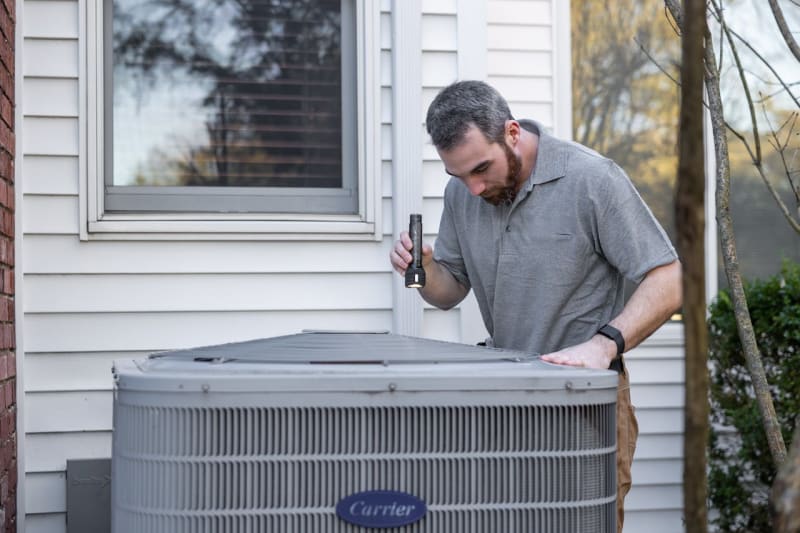

Why Clogged Air Filters Are Costing You More: A Homeowner’s Guide
“Clogged air filters can create problems many homeowners don’t notice until it’s too late,” says Shu Saito, HVAC & Filtration Expert, CEO, and Founder at All Filters. “When filters become clogged, HVAC systems have to work harder to push air through the filter. While some modern systems have safety mechanisms in place to limit damage, older systems are forced to work harder, putting stress on the motor and creating increased wear and tear on components that are not cheap to repair or replace."
First Step: Understanding the Consequences of an Unmaintained Air Filter

As a homeowner, it’s easy to overlook your HVAC system’s air filter. However, failing to replace or clean your air filters regularly can lead to problems that affect both your wallet and your home’s comfort. From rising energy bills to costly repairs, clogged air filters are a serious concern. This guide explores why obstructed air filters can cost you more, answers common questions about air filter maintenance, and provides tips for avoiding unnecessary expenses.
Why Clogged Air Filters Are a Serious Issue

“Clogged air filters can create problems many homeowners don’t notice until it’s too late,” says Shu Saito, HVAC & Filtration Expert, CEO, and Founder at All Filters. “When filters become clogged, HVAC systems have to work harder to push air through the filter. While some modern systems have safety mechanisms in place to limit damage, older systems are forced to work harder, putting stress on the motor and creating increased wear and tear on components that are not cheap to repair or replace."
The stress on your system leads to higher energy bills and can cause uneven temperature distribution throughout your home. The result? Longer run times for your system, increasing energy costs and worsening air quality as the filter struggles to capture dust and debris.
Replacing AC air filters is an affordable preventive measure to protect your system and manage indoor air quality.
Five Ways Clogged Air Filters Are Costing You More

1. Increased Energy Bills
An obstructed filter forces your HVAC system to work harder, using more energy. Replacing a dirty filter can reduce energy consumption by up to 15%, saving you money on utility bills.
2. Expensive Repairs
As your HVAC system struggles to push air through a clogged filter, parts like the blower motor and evaporator coil may overheat. This stress can cause these components to wear out faster, leading to costly repairs.
3. Shortened HVAC Lifespan
HVAC systems are built to last 10–15 years, but clogged filters put unnecessary strain on your system, reducing its lifespan. Regularly changing the filter helps extend the life of your system, saving you the expense of premature replacement.
4. Decreased Comfort
When airflow is restricted, it takes longer for your HVAC system to reach the desired temperature. In the summer, it can leave rooms feeling too warm, while in winter, it can result in chilly spaces. Regular filter changes keep the temperature stable.
5. Poor Indoor Air Quality
Air filters trap dust, pollen, and other allergens. When they become dirty, the system struggles to trap particles, allowing them to circulate throughout your home. This worsens air quality, triggering allergies and asthma. A clean filter helps maintain healthy air quality.
How Often Should You Replace Your Air Filter?

The frequency of air filter replacement depends on several factors. Standard 1-inch filters need replacement every 2–3 months, but thicker filters (3–5 inches) can last up to a year. If you have pets, smoke indoors, or live in an area with high pollen levels, you may need to replace the filter more frequently. Homes with heavy usage during peak seasons may also require more frequent replacements.
It’s important to check your air filter regularly. Even if it’s not yet time for a replacement, an inspection will tell you if it’s clogged and needs changing.
Choosing the Right Air Filter

When replacing your air filter, proper sizing is crucial. Measure the filter's dimensions to ensure a perfect fit. An improperly sized filter can cause air to bypass, allowing contaminants to accumulate.
Consider the MERV rating (Minimum Efficiency Reporting Value), which measures a filter’s effectiveness. For most homes, a MERV rating between 8 and 11 works well. Higher-rated filters trap smaller particles but can restrict airflow, stressing the system. Make sure your HVAC system can handle a higher MERV rating before choosing one.
Do HVAC Techs Offer Maintenance Plans?

Many technicians offering HVAC services will advise on maintenance plans that include air filter replacement. These plans often include regular inspections, cleaning, and tune-ups, helping to catch issues before they become costly repairs. Most HVAC companies provide options for two or more visits per year, ensuring your system runs smoothly year-round.
By enrolling in a maintenance plan, homeowners can enjoy peace of mind, knowing their HVAC system is regularly checked and the air filter is replaced on time. These services can also help address potential problems early, saving money on emergency repair costs.
Prevent High Costs with Regular Air Filter Maintenance

Clogged air filters may seem like a small issue, but they can lead to significant costs over time. From increased energy bills to expensive repairs and a shorter system lifespan, ignoring your air filter can affect your home’s comfort and your wallet. Regular filter replacement is one of the easiest and most cost-effective ways to maintain your HVAC system and improve indoor air quality.
By checking and replacing your air filter regularly, choosing the right filter for your system, and considering an HVAC maintenance plan, you can save money, prevent costly repairs, and keep your home comfortable year-round. Don’t overlook this simple maintenance task – it’s an investment that pays off in the long run.